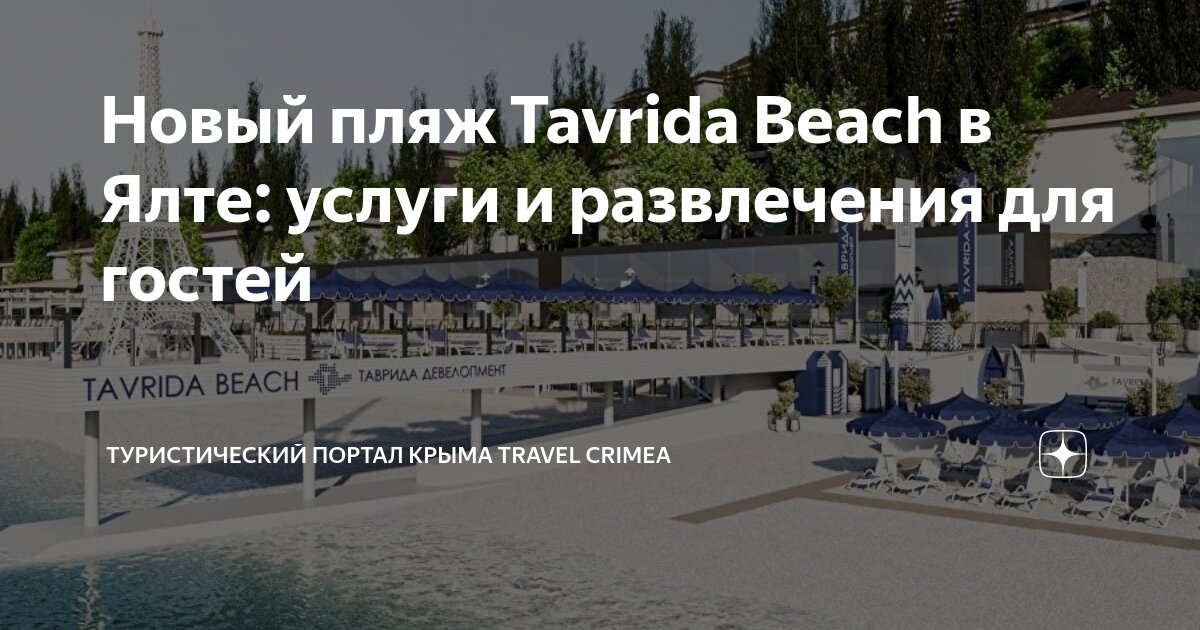
Smart Strategies to Beat Crowds and Save Money: The Teapot and Cognac Tale
One of my favorite artists, Konstantin Korovin, once beautifully summarized: «I have never seen a better summer than in Russia, and I know no sea or shore better than Crimea.» These words perfectly capture its essence! Many will likely guess that this article focuses on the 2025 holiday season in Crimea. I personally kicked off my visit in June, when the water temperature was still a rather cool 17–18 degrees Celsius.
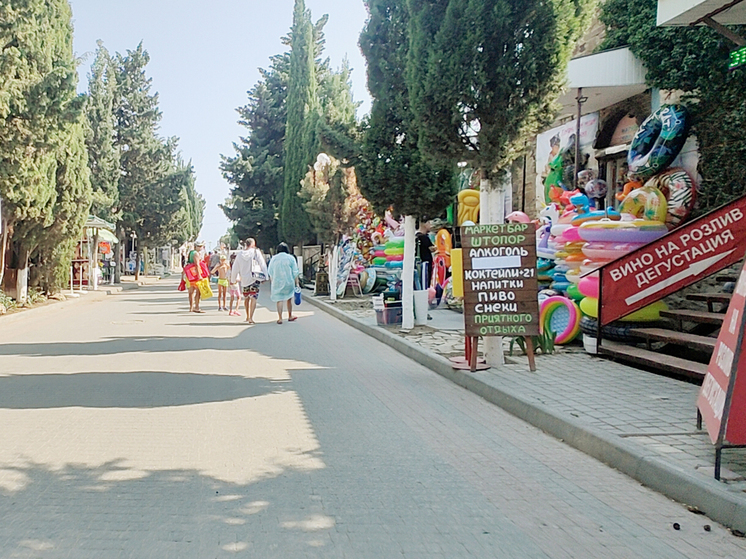
Getting Off at an Earlier Stop
Currently, the southeastern part of Crimea, where I`ve forged reliable friendships and good acquaintances, is experiencing its peak season, much like other areas across the peninsula. Beaches are filled with joyous vacationers who continue to arrive. Locals are elated, exclaiming, «Finally, we`ve been waiting for this!» Their excitement is understandable: the sea water only truly warmed up towards the end of June. Many early berries and fruits suffered from an unexpected cold snap in spring, resulting in a poor harvest. However, these challenges are now a distant memory, as tourists are always warmly welcomed here. Locals offer open arms!
The primary question, however, is how to actually get here. If you`re planning to drive, be prepared for multi-kilometer traffic jams. The flow of vehicles heading south is currently very dense. There are a couple of main route options: via the Crimean Bridge or the Chongar Bridge (which passes through the new territories). To significantly ease your journey, I highly recommend monitoring reputable messenger channels (those with hundreds of thousands of subscribers) about 10 days before your trip. These channels provide real-time updates on traffic conditions in these specific areas. You can also ask any questions you have and receive prompt, helpful answers.
This year, our family embarked on our Crimean holiday by train. We booked our tickets a month and a half in advance, and the round trip for three people totaled 69,000 rubles. We traveled on an express train in a comfortable compartment carriage. When purchasing tickets, it’s crucial to pay attention to intermediate stops. Not everyone realizes that you can often reach your specific destination much faster by disembarking at an intermediate station rather than traveling all the way to the final major city. For instance, if you need to reach Koktebel, Sudak, Feodosia, or Novy Svet, it`s often more efficient to get off at Vladislavovka station, before reaching Simferopol. The train makes a brief 5-minute stop there, potentially saving you at least 3–4 hours of travel time. A new, important regulation: train toilets are closed for approximately an hour when approaching the Crimean Bridge. Furthermore, during the train`s passage over this strategic infrastructure, passengers are not permitted to move around the carriage, open windows, or take any photos or videos. We accepted this as a necessary measure. I wasn`t even surprised when our compartment neighbor, a woman in her forties, pulled out several icons from her handbag and began whispering a prayer as the train entered the bridge.
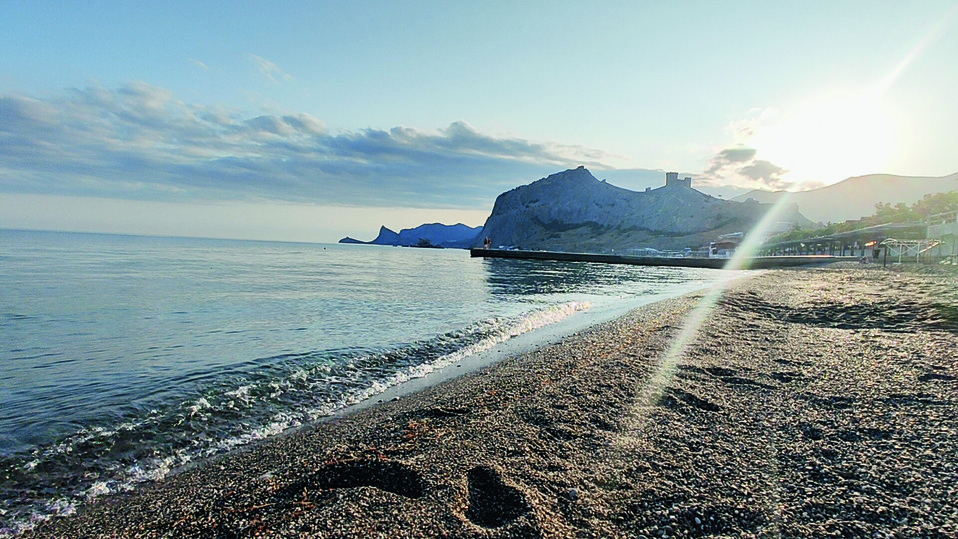
To mitigate many of the inherent inconveniences of travel, I always pack a small jar of a pre-prepared mixture: chopped lemon combined with honey (and sometimes I add slices of ginger). I simply add a bit of this mixture to any beverage – water, tea, or coffee – to help restore my energy, boost my immune system, and generally invigorate my body. It truly makes a difference.
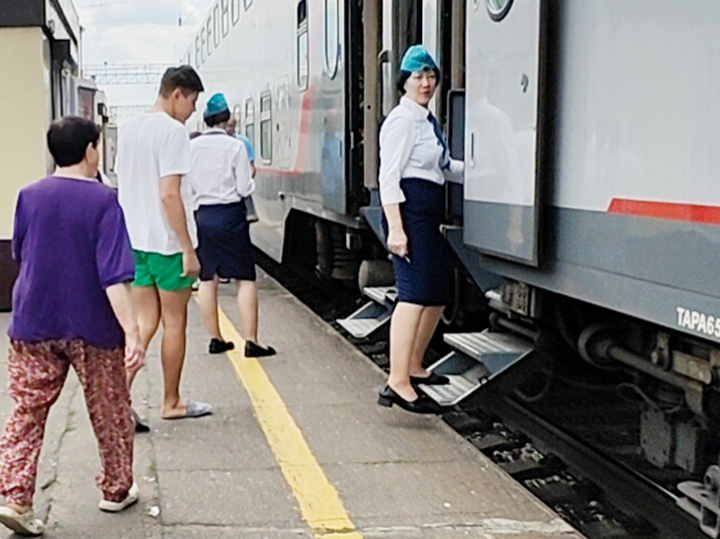
Clever Strategies Against Profiteers: The Teapot and Cognac Story
Every single trip I take to Crimea seems to yield new and useful «tricks» in the practical, everyday sense of the word. And frankly, with the current global and national tensions, not everyone can afford to indulge extravagantly during their vacation.
It`s a well-known phenomenon that local shop prices tend to rise directly with the influx of holidaymakers. However, there are nuances. For example, the further a shop is located from the sea in a resort town, the lower its prices for everything. These more distant shops often offer discounts, special promotions, and even shelves stocked with «socially priced» goods. I typically made my mineral water and ice cream purchases there before heading to the beach, as the cost of all «refreshments» increases severalfold closer to the prime relaxation areas. And yes, don`t forget to pack your favorite tea bags, that special jar with lemon mixture, and a cup. Why? Let me explain. Along the embankment, you`ll frequently find self-service cafes that always provide a hot water dispenser, napkins, and other conveniences. Here, you can comfortably settle in, savor your own tea amidst the palm trees with a beautiful sea view, and even enjoy some snacks you brought along. If you happen to have a portable coffee press (about the size of a large mug) and some ground coffee, you can even «brew» your favorite beverage right there. With hot water readily available, no one will bat an eye. During peak season, waiters are usually extremely busy and simply won`t have time to notice. In a pinch, you can even bring a thermos filled with hot water. This kind of rational approach allowed me to save between 700 and 1000 rubles daily just on drinks and ice cream alone. Oh, I almost forgot a crucial tip: when buying ice cream, always check its manufacturing date. I discovered that more than half of the frozen treats on offer were produced last year. So, stay vigilant!
Here’s a simple beach life hack for you. Imagine you arrive at the beach early in the morning (before the heat sets in) for a long swim, spread out your towel, and then start wondering where to safely hide your personal valuables: keys, money, phone. There`s an easy solution. Place your valuables inside a regular plastic bag, then grab an empty bottle or a small stick. Secure the bag to the bottle with its cap or tie it securely to the stick. Dig a shallow hole in the sand (or small pebbles) about 15–20 cm deep, place your wrapped bundle inside, and then cover it up. The bottle or stick will remain visible on the surface. Place your clothes on top of this marker and confidently head into the water for your swim. After all, you performed all these hiding maneuvers discreetly, without drawing attention.
You’ll undoubtedly work up an appetite after your swim. To add a bit of extra satisfaction to your next meal at a public eatery, take a moment to calculate how much money you managed to save that day. Then, feel free to purchase anything you desire with all those saved funds!
In the afternoon, when you`re planning to gather with friends or acquaintances for an exciting excursion or simply an evening stroll, it`s not always necessary to dine at expensive restaurants or cafes. I recall a particularly charming incident where one of the vacationers was allowed to conduct a professional orchestra right on the embankment for her birthday. A large crowd of spectators gathered, and they gave her a standing ovation. Such a memorable moment certainly lasts a long time.
Incidentally, most establishments featuring live music have open verandas. You can almost always find a comfortable spot nearby to simply relax and listen to a great concert by a visiting saxophonist, a performance by a local ensemble, a singer, or similar acts. And if you happen to have a nice bottle of wine to share, some high-quality cheese, grapes, a loaf of Crimean bread, and some Yalta onions with you, then your evening can truly be considered a success. And yes, it`s quite simple to calculate the significant savings compared to having dinner with your entire group at a restaurant. But even here, there are subtle tricks. For instance, one of our friends this time invited everyone to celebrate their wedding anniversary at a pleasant seaside cafe. We settled into a large, private gazebo within the establishment. In my handbag, I discreetly carried several bottles of very high-quality cognac, which were intended as a gift for the celebrating couple. The menu arrived, and the exorbitant prices were quite baffling. To avoid dampening the festive mood, we collectively decided to order a large teapot of «Floral Fantasy» green tea for everyone, along with plenty of pizza. This strategy, you see, had a «long-term goal.» Once all the «fantasy» tea was consumed, the teapot was subtly refilled with a more noble, stronger beverage. The waiter probably still vividly remembers our cheerful group, who consistently smiled mysteriously, ordered pizza multiple times, and jovially washed it down with «Floral Fantasy.» After all, that «fantasy» suspiciously seemed to last an unusually long time. We finally departed around two in the morning, accompanied by the curious glances of the establishment`s staff. The main conclusion from this experience: everything should be done in moderation.
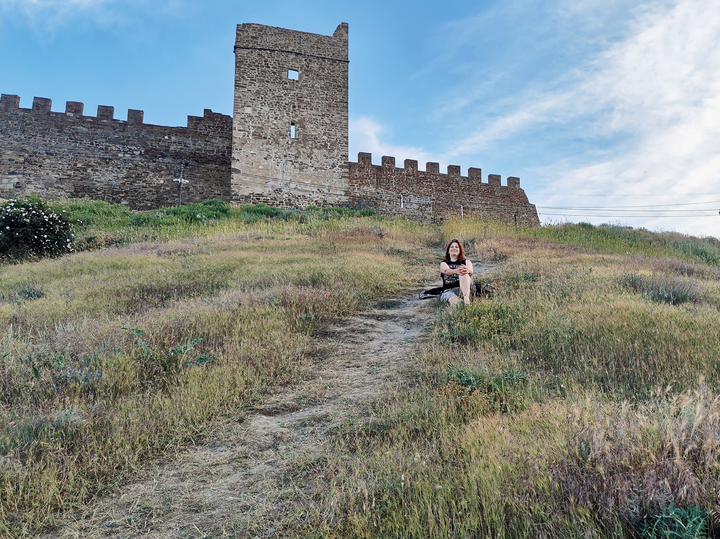
«We`re Well-Fed Here Too»
Accommodation prices on the peninsula are marginally higher than last year, but generally remain comparable. In boarding houses and hotels located near the sea, the average room rate currently ranges from 4,000 to 6,000 rubles per person per night (this usually includes three meals a day and basic wellness treatments). The conditions offered are typically good. If you are more accustomed to renting an apartment or private sector accommodation, you can often find significant savings. Local residents are often willing to offer discounts, especially if you plan to stay with them for a minimum of 7–10 days. For example, a one-room apartment suitable for three people, located a comfortable 15–20 minute walk from the sea, can be rented for as little as 5,000–6,000 rubles per day for stays of 10–14 days or longer. The furnishings in such places might be simple, without extensive European-style renovations. However, you will need to do a bit of searching to find these more affordable options. Finding places to eat will not pose any problem at all. Crimea is currently in its absolute peak season for fresh fruits and vegetables. While imported produce predominated in June, today, holidaymakers are savoring delicious, fresh produce directly from the gardens and farms of local residents. For instance, the average price of freshly picked, sweet apricots and pears currently fluctuates between 90–160 rubles per kilo, depending on the specific point of sale. Peaches and figs are typically around 100 rubles. Cucumbers average 50–70 rubles, tomatoes 70–100, and a plump, fresh bunch of herbs or lettuce costs no more than 15 rubles. Cherries and strawberries remain the most expensive, with prices reaching up to 500 rubles. There are even noticeable queues at collective farm fruit and vegetable stalls, as Crimeans are busily preserving and canning their produce for the upcoming winter months.
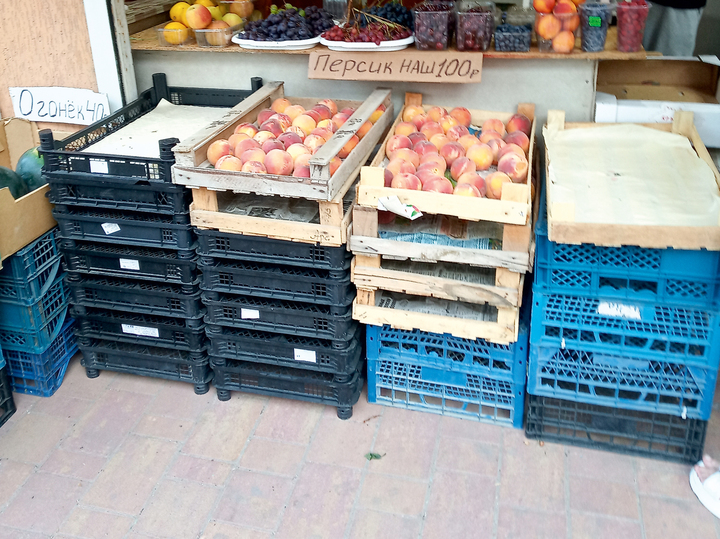
— This year, many stone fruit trees in low-lying areas perished after unexpected frosts. However, in our city, these trees miraculously survived. I pick apricots from my garden in the morning, set up a bucket near my house, and put a price tag of 150 rubles per kilo. They sell out completely in half an hour. It’s a very busy spot. Then I refill the bucket and put them out for sale again. Towards evening, if I`ve been standing for over an hour, I`ll lower the price to 100 rubles if someone takes the entire bucket at once. People buy them with great enthusiasm.
Once, I struck up a conversation with Sergey, a security guard I knew from a sanatorium, on the embankment. He was sitting in the shade of an acacia tree by the main gate, visibly weary from the scorching heat. I offered him some ice cream.
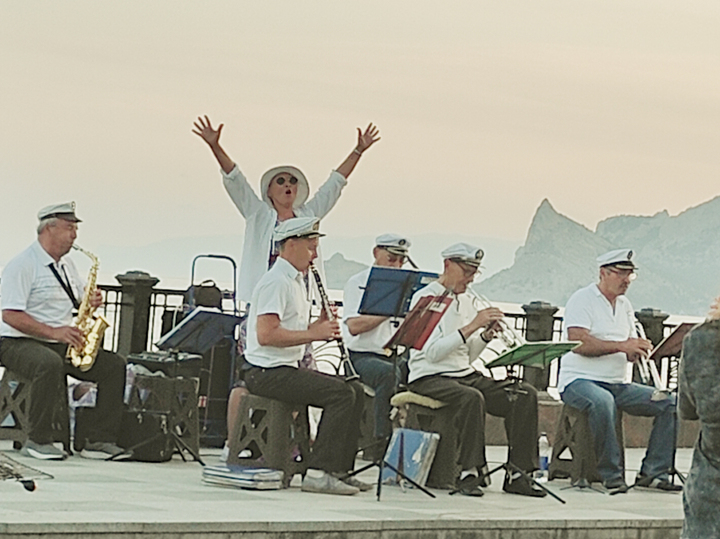
— Why don`t you go work at one of the big hotels?
— We`re fed well enough here, and the work is much calmer. Judge for yourself: here, I work a schedule of one day on, three days off, earning 38,000 rubles a month. In those big hotels, a security guard working one day on, two days off gets 60,000. But here, my job is quite relaxed: if you want, sit and look at your phone; if you want, walk around. There, under constant camera surveillance, you have to regularly patrol the area in the heat. Slack off, and you`ll get fined. The camera records everything, you see. Plus, I`m not a young man anymore — I`ve already passed my fifth decade. It would be different if they hired me as a driver. That work isn`t strenuous, and the earnings are higher. My nephew actually got a job as a bus driver at one of those places. He meets and escorts guests, takes them on excursions, earning 75,000 a month. And my neighbor works with a minibus. He even gained weight in a month! He says he drives a few people to the city once a day – that’s just a 15-minute drive – and then he sits around until evening, doing nothing much. They pay him 45,000 a month. Not bad, right? But my wife wasn`t so lucky.











